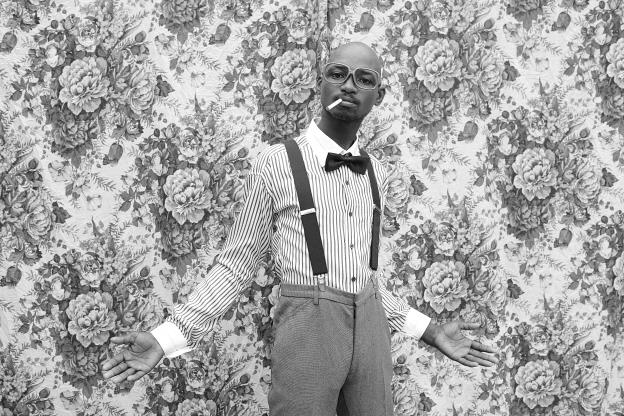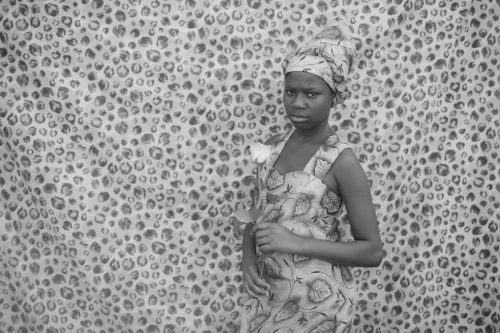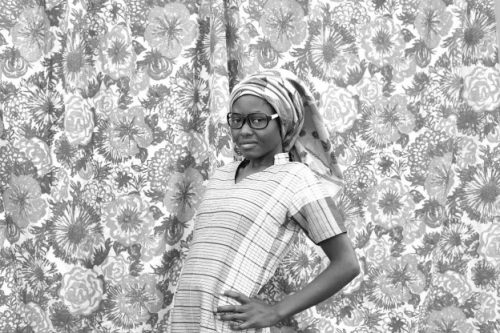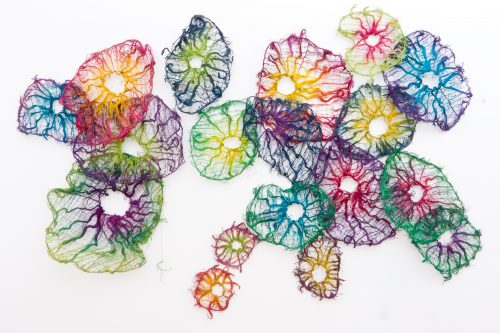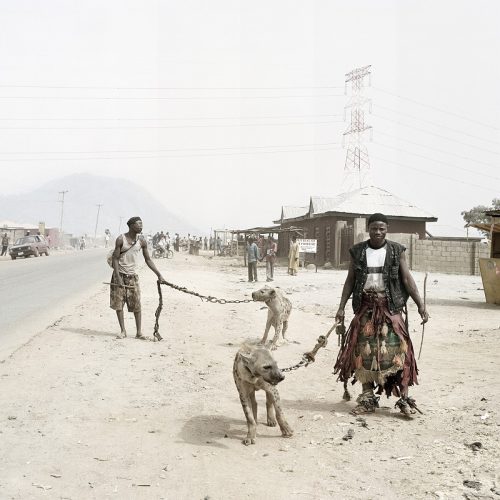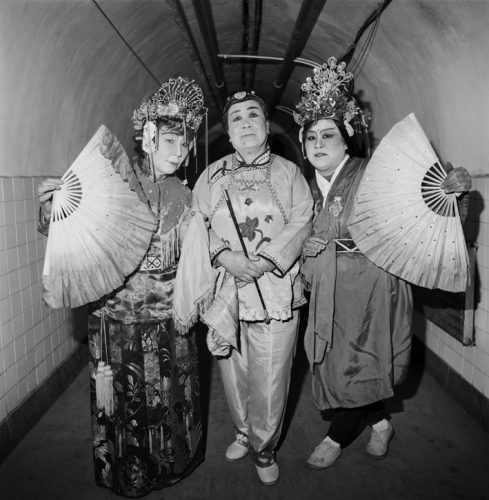The Mozambican artist Mário Macilau’s portrait photographs are closely associated with political events in his nation. In terms of theme, he primarily focuses on depicting the living conditions of groups on the margins of society – with the aim of creating a wider public forum for their situation, based on a vision of photography as an instrument of social change.
His ongoing series entitled Moments of Transition focuses on the identity and culture of young Mozambicans, which is partially reflected in their choice of clothing – a mix of urban style elements and typically African fabrics, such as the capulana. This concept in fashion is influenced primarily by the dominant market in second-hand clothing originating from Western countries, and by young African students who bring European fashion ideas with them when they return to Maputo. In these black-and-white photographs, modern day residents of that city pose in front of strips of printed fabric, which interact with their patterned clothing to produce an Op Art effect. The background patterns are characteristic of African photographic artists such as Malick Sidibé and Seydou Keita, whose pictorial traditions are continued and deliberately recalled by Macilau in his series.
Mário Macilau
Untitled (Moments of Transition) #2, 2014
